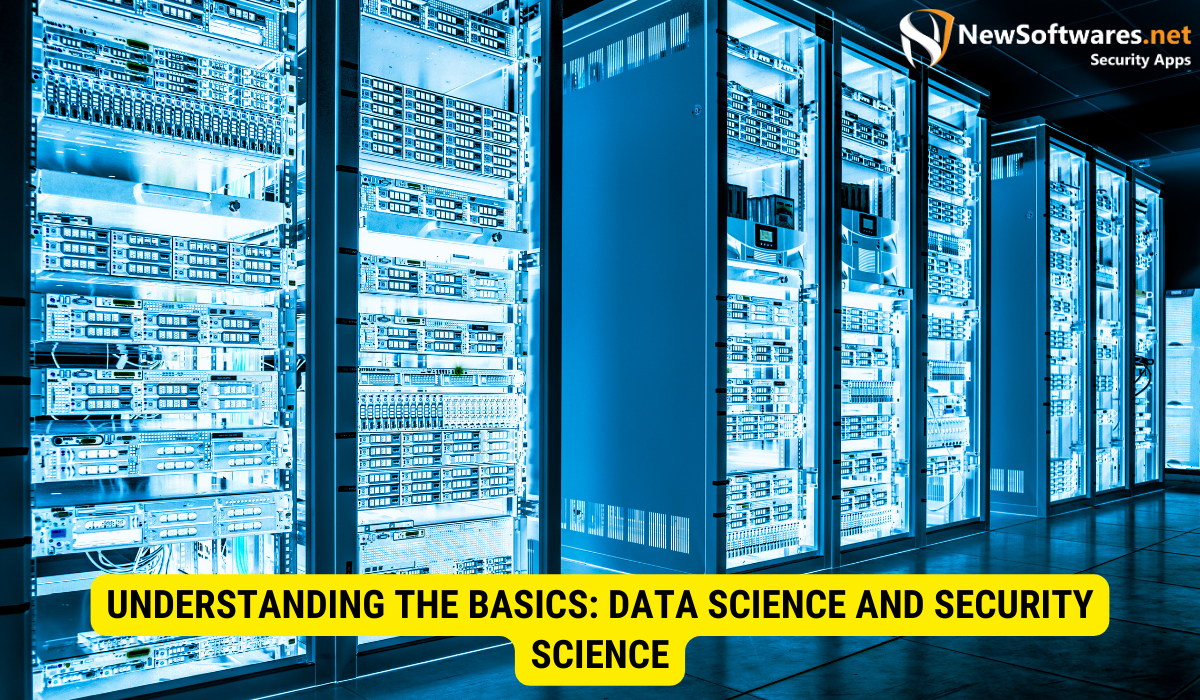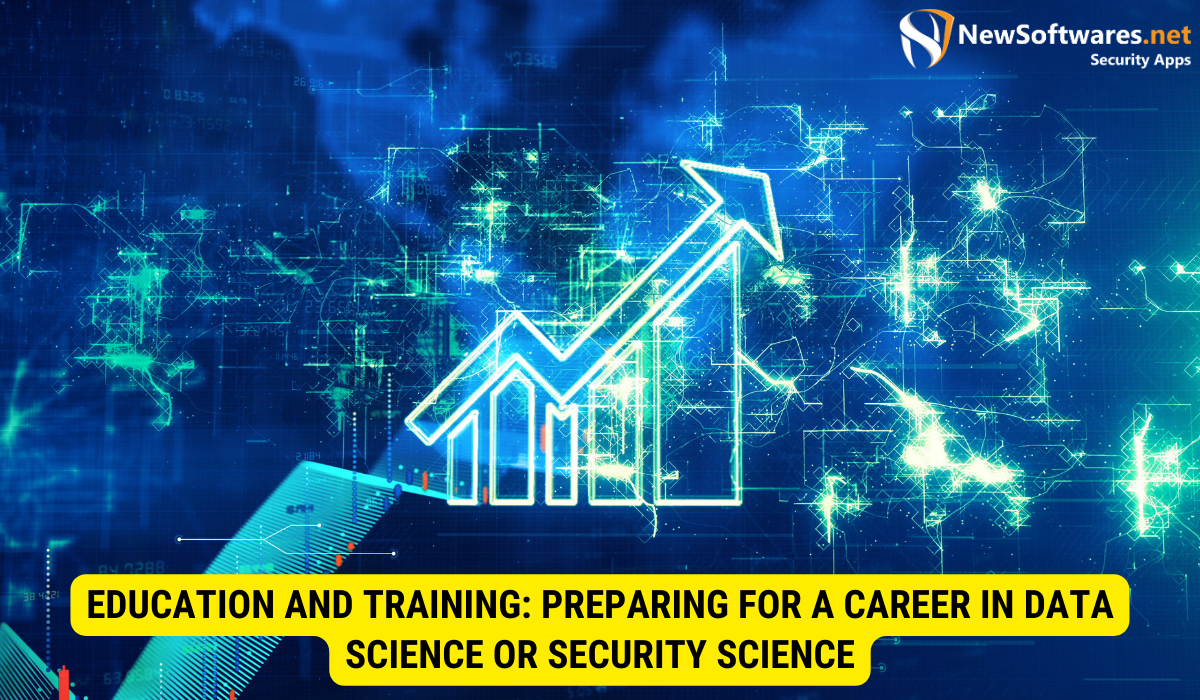Choosing between data science and security science depends on your skills, interests, and career goals. Data science involves analyzing large datasets to derive insights and drive business decisions, requiring skills in programming, statistics, and machine learning. Security science focuses on protecting digital assets from cyber threats, demanding knowledge in network security, ethical hacking, and incident response. Both fields offer strong job prospects and competitive salaries, but require continuous learning and adaptation to industry advancements. Consider your passion, assess your abilities, and explore the job market to make an informed decision.
In today’s technologically advanced world, the fields of data science and security science have emerged as highly sought-after career paths. With the increasing dependence on data and the growing need for robust security measures, professionals in these domains play a crucial role in ensuring the smooth functioning of organizations and safeguarding sensitive information. If you find yourself at a crossroads between these two disciplines, it’s important to understand the basics, assess your skills, explore the career opportunities, compare the salaries, and plan your educational path accordingly. My aim is to provide you with insights into making an informed decision when choosing between data science and security science.
Understanding the Basics: Data Science and Security Science

What is Data Science?
Data science is a multidisciplinary domain focusing on deriving practical knowledge from extensive structured and unstructured datasets. This field merges aspects of statistics, mathematics, and computer science to scrutinize, comprehend, and construct models from intricate data collections. Professionals in data science employ coding languages like Python or R, along with data visualization tools, machine learning algorithms, and statistical methods, to identify patterns, forecast future trends, and facilitate decisions based on data. These experts offer critical insights to enterprises, enhancing operational efficiencies, elevating customer interactions, and fostering innovative practices.
Data science has revolutionized various industries, including healthcare, finance, marketing, and transportation. In the healthcare sector, data scientists analyze patient records, medical images, and genomic data to develop personalized treatment plans and predict disease outcomes. In finance, data scientists use algorithms and predictive models to detect fraudulent transactions and assess investment risks. In marketing, they analyze customer behavior and preferences to create targeted advertising campaigns. In transportation, data scientists optimize routes, reduce fuel consumption, and improve safety by analyzing data from sensors and GPS devices.
What is Security Science?
Security science, on the other hand, focuses on safeguarding information systems, networks, and data from unauthorized access, breaches, and cyber threats. It encompasses various domains such as network security, cryptography, ethical hacking, risk assessment, and incident response. Security scientists are responsible for designing and implementing robust security measures, conducting vulnerability assessments, detecting and mitigating cyber attacks, and ensuring compliance with regulatory frameworks. They play a critical role in preserving the confidentiality, integrity, and availability of digital assets.
In today’s interconnected world, security science has become increasingly important. With the rise of cybercrime, organizations need security scientists to protect their sensitive information and prevent financial losses. Security scientists work closely with IT teams to identify vulnerabilities in systems and networks, develop secure coding practices, and implement encryption algorithms to protect data at rest and in transit. They also conduct penetration testing to assess the effectiveness of security controls and simulate real-world cyber attacks to identify weaknesses in the organization’s defenses.
Moreover, security scientists are involved in incident response, which involves investigating security breaches, containing the damage, and recovering compromised systems. They analyze logs, network traffic, and malware samples to identify the source of the attack and develop strategies to prevent future incidents. Additionally, security scientists stay updated with the latest security threats and trends, constantly adapting their strategies to stay one step ahead of cybercriminals.
Key Skills Required in Data Science and Security Science
Essential Skills for Data Scientists
Data scientists are required to have a multiplicity of skills to be successful in their positions. Key among these are robust analytical abilities and problem-solving capabilities. They should also have a thorough grasp of statistical methodologies and be proficient in programming languages. Skills in using tools and technologies, including Python, R, SQL, and various machine learning platforms, are greatly valued. Additionally, the ability to communicate effectively is vital, as data scientists must be able to convey their discoveries and insights to stakeholders in a way that is both clear and comprehensible.
Essential Skills for Security Scientists
Security scientists should have a deep understanding of computer networks, protocols, and security mechanisms. They need to be familiar with cybersecurity frameworks, threat intelligence, and risk assessment methodologies. Proficiency in ethical hacking techniques, incident response, and security tools is vital. Attention to detail, problem-solving abilities, and a proactive approach to identifying vulnerabilities and implementing mitigation strategies are also key attributes for security scientists.
Career Opportunities in Data Science and Security Science
Job Prospects in Data Science
The demand for data scientists has witnessed exponential growth in recent years. Organizations across various industries, including finance, healthcare, e-commerce, and marketing, are actively seeking professionals who can harness the power of data. Data scientists have diverse career opportunities, ranging from data analysts and business intelligence professionals to machine learning engineers and research scientists. The prospect of working on cutting-edge projects, exploring new technologies, and solving complex business problems makes data science an attractive field.
Job Prospects in Security Science
In today’s digital landscape, cybersecurity has become a top priority for businesses and governments worldwide. As a result, the job prospects for security scientists are exceptionally promising. Companies seek security professionals to protect their networks, combat cyber threats, and ensure compliance with data protection regulations. Security scientists can find opportunities as security analysts, penetration testers, cybersecurity consultants, or even as chief information security officers (CISOs). The evolving threat landscape and constant advancements in technology make security science an exciting and challenging field.
Comparing the Salaries: Data Science vs Security Science
Average Salary of a Data Scientist
Data scientists are highly valued for their expertise in handling and interpreting data. The average salary of a data scientist varies depending on factors such as experience, location, and the industry. On average, entry-level data scientists can earn around $90,000 per year, while those with several years of experience and advanced skills can command six-figure salaries. Data scientists working in top tech hubs like Silicon Valley can earn significantly higher salaries, with the potential to cross the $150,000 mark.
Average Salary of a Security Scientist
Security experts are often compensated with attractive salaries, reflecting the importance of their role. The income of security experts depends on various elements, including their level of experience, acquired certifications, and the scale and sector of their employer. Those starting in this field might see annual earnings close to $70,000, whereas seasoned experts often receive salaries that reach or surpass the six-figure mark. Professionals in sectors like finance, healthcare, and government usually have higher earnings due to the increased responsibility of safeguarding confidential data.
Education and Training: Preparing for a Career in Data Science or Security Science

Educational Path for Aspiring Data Scientists
To embark on a career in data science, a strong educational foundation is crucial. Most data scientists hold a bachelor’s or master’s degree in computer science, statistics, mathematics, or a related field. Additionally, acquiring knowledge in machine learning, programming languages, and data visualization is essential. Many aspiring data scientists pursue specialized certifications or complete online courses to acquire industry-relevant skills and stay updated with the latest tools and techniques.
Educational Path for Aspiring Security Scientists
Those who are considering a career in security science will find that there are multiple educational routes available. Although having a degree in fields like computer science, information technology, or cybersecurity can be beneficial, it’s not uncommon for individuals in this sector to acquire their skills through practical experience and obtaining professional certifications. Obtaining prominent certifications like the Certified Ethical Hacker (CEH), Certified Information Systems Security Professional (CISSP), or Offensive Security Certified Professional (OSCP) can significantly improve employment opportunities within the realm of security science.
Key Takeaways
- Data science and security science are both rewarding career paths with unique skill sets and job prospects.
- Data scientists focus on extracting insights from data to drive business decisions and innovation.
- Security scientists protect information systems, networks, and data from unauthorized access and cyber threats.
- The demand for data scientists is rising rapidly, with diverse career opportunities across industries.
- Security scientists play a crucial role in safeguarding organizations against cyber threats, with promising job prospects.
Frequently Asked Questions
-
Which field, data science or security science, offers better job prospects?
Both data science and security science offer excellent job prospects, with growing demand in the market. The choice ultimately depends on your interests and career goals. Assess your skills and passion for either field to make an informed decision.
-
What are the key skills required for a successful career in data science?
Some essential skills for data scientists include analytical thinking, programming expertise, statistical knowledge, and effective communication. Proficiency in programming languages such as Python or R and familiarity with machine learning concepts are also highly valued.
-
Is a degree in cybersecurity necessary to become a security scientist?
While a degree in cybersecurity or a related field is beneficial, it is not the only path to becoming a security scientist. Many professionals gain expertise through industry certifications, hands-on experience, and continuous learning. However, a strong educational foundation can provide a solid starting point.
-
How much can I assume to earn as a data scientist?
The average salary of a data scientist can vary depending on factors such as experience, location, and industry. Entry-level data scientists can expect salaries around $90,000 per year, while experienced professionals can earn six-figure salaries, with the potential for further growth in top tech hubs like Silicon Valley.
-
Are there growth opportunities in the field of security science?
Yes, there are ample growth opportunities in the field of security science. As cybersecurity threats continue to evolve, organizations are investing more in securing their digital assets. Security scientists can advance to senior positions, such as security consultants, penetration testers, or even CISOs, with experience and additional certifications.
Conclusion
Choosing between data science and security science is a decision that depends on your skills, interests, and long-term career goals. While data science focuses on deriving insights from large datasets to drive business decisions, security science concentrates on protecting digital assets from cyber threats. Both fields offer promising job prospects, competitive salaries, and the chance to work on cutting-edge technologies. Assess your skills, explore the job market, consider your passion, and make an informed decision that aligns with your aspirations. Whichever path you choose, continuous learning and staying updated with industry advancements will be essential to thrive in these rapidly evolving fields.
